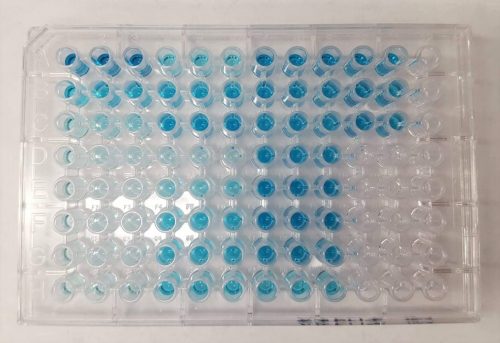Image courtesy of Wikimedia Commons.
With the pandemic showing no signs of slowing down, testing for the virus has become increasingly important. To that end, researchers at the University of Cape Town in South Africa are developing a testing method using plant-derived recombinant viral proteins. The team used an indirect enzyme-linked immunosorbent assay (ELISA) with the S1 subunit and receptor-binding domain (RBD) of SARS-CoV-2. ELISA tests are commonly used to detect antibody levels. Thus, the team sought to create an ELISA that will detect the antibodies directed at the S1 subunit and RBD of the virus.
The results show promise as the ELISA could accurately detect SARS-CoV-2-specific IgG and IgA––antibodies––in saliva. Most notably, the researcher’s ELISA made from antigens found in plants performed just as well when compared to a validated, high sensitivity commercial ELISA.
The researchers successfully showed that using recombinant SARS-CoV-2 proteins enables the detection of the virus’ humoral responses. Their success brings us one step closer to improving testing methods for infected populations and measuring antibody strength in infected patients.

